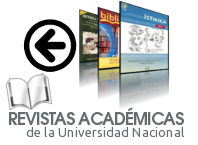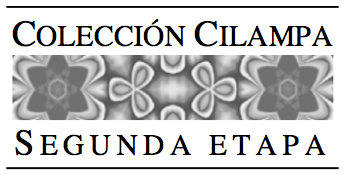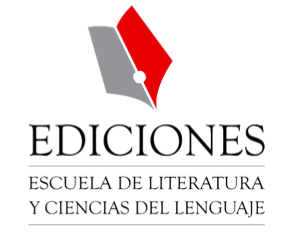Letras is an academic journal published twice yearly by the School of Literature and Language Sciences. Its main objective is the dissemination of relevant intellectual production generated within the School of Literature and Language Sciences, although it is not limited only to that production.
Letras publishes articles related to various fields of linguistics, literature, and culture of different countries; language teaching, learning and acquisition; semantics, semiotics and pragmatics; discourse analysis and textual linguistics; translation and interpretation; terminology; indigenous languages and cultures; and the languages of Costa Rica. Thus, its readership consists mainly of members of the national and international academic community who specialize in these subject areas. However, the contents of the journal are also of particular interest to specialists in training (undergraduate, graduate and postgraduate students) as well as to the occasional reader interested in such topics.
Papers may be written in Spanish, English or French. In all cases, the document(s) must be presented in a recent version of Microsoft Word® and comply strictly with the instructions for authors and template that the journal has provided for writing and submitting articles. Proponents should send their articles to the email address revistaletras@una.ac.cr. Every manuscript sent to Letrasas an article proposal is submitted to a review process that involves both the Editorial Committees and external specialist reviewers. This process is carried out anonymously; that is, the evaluators do not know the identity of the authors, and the authors do not know the identity of the evaluators.
All the issues and articles that make up the journal’s collection—since its first issue was published in 1979—can be consulted and downloaded free of charge from its website.
Letras is backed by the seal of the EUNA university press, with its respective ISSN number for its print version and EISSN for its electronic version, with a statistics system and a Creative Commons license. Likewise, the journal is associated to various international indexes and databases (such as Actualidad Iberoamericana, CCUC, CIRC, Dialnet, DOAJ, ERIHPlus, ESJI, EZB, Genamics, J4F, Journal TOCS, LATINDEX, MIAR, MLA, OCLC World-Cat, REAO, REDIB, REBIUN, RETI, SHERPA / RoMEO, SUDOC, Ulrich's and ZBD) and assigns DOI identifiers to each of its articles. All these attributes improve the diffusion of its articles internationally.
Authors should register on the ORCID platform (https://orcid.org). ORCID is a digital medium that offers authors worldwide, free of charge, the possibility of obtaining a personal identification number to link authors with their intellectual production.
Email: revistaletras@una.ac.cr
ISSN: 1409-424X | EISSN: 2215-4094
____________________________
Update: Letras is currently receiving articles for issues 75 and 76.
____________________________
Current Issue
Presentación
(Preface)
Algunos avances de los estudios literarios y de la crítica en el medio académico costarricense han hecho hincapié en la oportuna necesidad de plantear nuevos paradigmas al saber. Los análisis sobre los textos mismos, sus lecturas en relación con entornos históricos, ideológicos o políticos, la posibilidad de reencontrase con la fuente particular de la obra (el autor biográfico) se han movido en medio de afirmaciones, polémicas, reafirmaciones o descartes. Ya en entregas anteriores de Letras esto se ha hecho manifiesto. El estudio literario se ha convertido, hoy día, en un campo de debates y exámenes, no solo de los objetos de estudio que le son propios, sino además de los procedimientos, de los puntos de partida y de la configuración de nuevos objetos, aledaños o insertos en el hecho literario. Una de esas nuevas aproximaciones se ejemplifica en esta entrega con el estudio de Bradley Harvey; otras exploran textos ya visitados con abundancia por la crítica, para indagar sobre aspectos que van más allá de lo meramente ideológico o político (en este caso, sobre las letras centroamericanas, como los de Arias Ramírez y de González Hernández).
Los estudios de lingüística aplicada, en nuestros tiempos, obligan a una permanente revisión de sus principios y proyecciones. Serán necesarios y más enjundiosos los que emprendan análisis sobre las lenguas originarias, en particular de la región centroamericana y circunvecinas, sean los propósitos particulares que persigan: el reconocimiento, la revitalización, el registro histórico de un patrimonio cultural. En un espacio disciplinar distinto —aunque no opuesto del todo— las aproximaciones a nuevas formas textuales y comunicativas se hacen no menos oportunas, aun cuando su aparato conceptual y metodológico todavía esté en cierne en nuestros días; el «meme», el podcasting son hechos efectivos y funcionales de la cotidianidad cultural, cuyos alcances y resultados han de analizarse, porque operan y significan socialmente.
Sherry E. Gapper, directora















